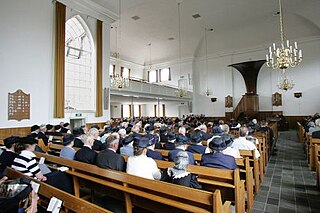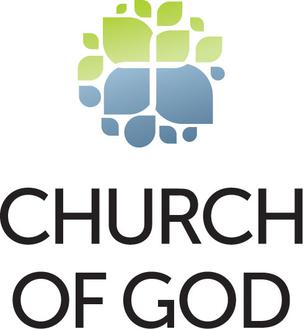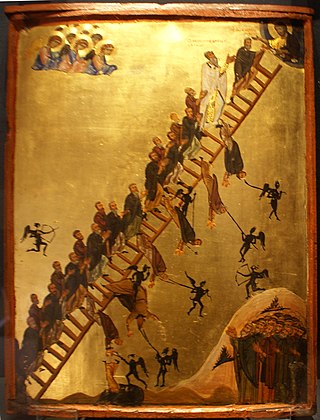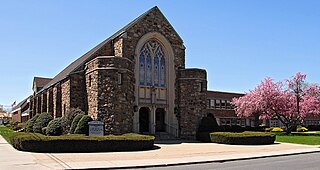Christian eschatology is a minor branch of study within Christian theology which deals with the doctrine of the "last things", especially the Second Coming of Christ, or Parousia. The word eschatology derives from two Greek roots meaning "last" (ἔσχατος) and "study" (-λογία) – involves the study of "end things", whether of the end of an individual life, of the end of the age, of the end of the world, or of the nature of the Kingdom of God. Broadly speaking, Christian eschatology focuses on the ultimate destiny of individual souls and of the entire created order, based primarily upon biblical texts within the Old and New Testaments. Christian eschatology looks to study and discuss matters such as death and the afterlife, Heaven and Hell, the Second Coming of Jesus, the resurrection of the dead, the rapture, the tribulation, millennialism, the end of the world, the Last Judgment, and the New Heaven and New Earth in the world to come.

The Eucharist, also known as Holy Communion, the Blessed Sacrament and the Lord's Supper, is a Christian rite that is considered a sacrament in most churches, and as an ordinance in others. Christians believe that the rite was instituted by Jesus at the Last Supper, the night before his crucifixion, giving his disciples bread and wine. Passages in the New Testament state that he commanded them to "do this in memory of me" while referring to the bread as "my body" and the cup of wine as "the blood of my covenant, which is poured out for many". According to the Synoptic Gospels this was at a Passover meal.

Many Christians observe a weekly day set apart for rest and worship called a Sabbath in obedience to Gods commandment to remember the Sabbath day, to keep it holy, usually on Sunday, the Lord's Day.

The Church of God , also called the Church of God Ministries, is an international holiness Christian denomination with roots in Wesleyan-Arminianism and also in the restorationist traditions. The organization grew out of the evangelistic efforts of several Holiness evangelists in Indiana and Michigan in the early 1880s, most notably Daniel Sidney Warner.

The Advent Christian Church, also known as the Advent Christian General Conference (ACGC), is a "first-day" body of Adventist Christians founded on the teachings of William Miller in 1860. The organization's Executive Director is Reverend Steve Lawson, and its President is Reverend John Gallagher.

The Christian Congregation in Brazil was founded in Brazil by the Italian-American missionary Luigi Francescon (1866–1964), as part of the larger Christian Congregation movement.

William Henry Willimon is a retired American theologian and bishop in the United Methodist Church who served the North Alabama Conference for eight years. He is Professor of the Practice of Christian Ministry and Director of the Doctor of Ministry program at Duke Divinity School. He is former Dean of the Chapel at Duke University and is considered by many as one of America's best-known and most influential preachers. A Pulpit & Pew Research on Pastoral Leadership survey determined that he was one of the two most frequently read writers by pastors in mainline Protestantism alongside the Roman Catholic writer Henri Nouwen. His books have sold over a million copies. He is also Editor-At-Large of The Christian Century. His 2019 memoir Accidental Preacher was released to wide acclaim, described by Justo L. Gonzalez as "An exceptional example of theology at its best."

The temptation of Christ is a biblical narrative detailed in the gospels of Matthew, Mark, and Luke. After being baptized by John the Baptist, Jesus was tempted by the devil after 40 days and nights of fasting in the Judaean Desert. At the time, Satan came to Jesus and tried to tempt him. Jesus having refused each temptation, Satan then departed and Jesus returned to Galilee to begin his ministry. During this entire time of spiritual battle, Jesus was fasting.

In Christianity, the Lord's Day refers to Sunday, the principal day of communal worship. It is the first day of the week in the Hebrew calendar and traditional Christian calendars, with the exception of European (workweek) calendars. It is observed by most Christians as the weekly memorial of the resurrection of Jesus Christ, who is said to have been raised from the dead early on the first day of the week. The phrase appears only once in Rev. 1:10 of the New Testament.

Eucharistic theology is a branch of Christian theology which treats doctrines concerning the Holy Eucharist, also commonly known as the Lord's Supper and Holy Communion. It exists exclusively in Christianity, as others generally do not contain a Eucharistic ceremony.
The theology of the Seventh-day Adventist Church resembles early Protestant Christianity, combining elements from Lutheran, Wesleyan-Arminian, and Anabaptist branches of Protestantism. Adventists believe in the infallibility of the Scripture's teaching regarding salvation, which comes from grace through faith in Jesus Christ. The 28 fundamental beliefs constitute the church's current doctrinal positions, but they are revisable under the guidance of the Holy Spirit, and are not a creed.

The "three angels' messages" is an interpretation of the messages given by three angels in Revelation 14:6–12. The Seventh-day Adventist church teaches that these messages are given to prepare the world for the second coming of Jesus Christ, and sees them as a central part of its own mission.
The Evangelical Protestant Church (GCEPC) or The Lutheran Evangelical Protestant Church (LEPC) is a mainline Protestant denomination under the General Conference of Evangelical Protestant Churches headquartered in Cayce-West Columbia, South Carolina, United States.
Good Friday Prayer can refer to any of the prayers prayed by Christians on Good Friday, the Friday before Easter, or to all such prayers collectively.
Repentance is a stage in Christian salvation where the believer acknowledges and turns away from sin. As a distinct stage in the ordo salutis its position is disputed, with some theological traditions arguing it occurs prior to faith and the Reformed theological tradition arguing it occurs after faith. In Catholic theology, Lutheran theology, Orthodox theology and Anglican theology, repentance plays a key role in Confession and Absolution.

"Remember the Sabbath day, to keep it holy" is one of the Ten Commandments found in the Torah.

Jesus and the rich young man is an episode in the life of Jesus recounted in the Gospel of Matthew 19:16–30, the Gospel of Mark 10:17–31 and the Gospel of Luke 18:18–30 in the New Testament. It deals with eternal life and the world to come.
The Pillars of Adventism are landmark doctrines for Seventh-day Adventists. They are Bible doctrines that define who they are as a people of faith; doctrines that are "non-negotiables" in Adventist theology. The Seventh-day Adventist church teaches that these Pillars are needed to prepare the world for the second coming of Jesus Christ, and sees them as a central part of its own mission. Adventists teach that the Seventh-day Adventist Church doctrines were both a continuation of the reformation started in the 16th century and a movement of the end time rising from the Millerites, bringing God's final messages and warnings to the world.

Eternal life traditionally refers to continued life after death, as outlined in Christian eschatology. The Apostles' Creed testifies: "I believe... the resurrection of the body, and life everlasting." In this view, eternal life commences after the second coming of Jesus and the resurrection of the dead, although in the New Testament's Johannine literature there are references to eternal life commencing in the earthly life of the believer, possibly indicating an inaugurated eschatology.

Hackensack Gospel Church previously known as the First Baptist Church of Hackensack is a non-denominational church located in Hackensack, New Jersey. It is a campus of the Hawthorne Gospel Church. The campus covers a full city block of land and includes a 500-seat worship auditorium, a school offering pre-kindergarten through grade 12, a day camp, and a library. The church formerly had a bookstore and various other ministry as well. At one point the church had nearly 1,500 members.














